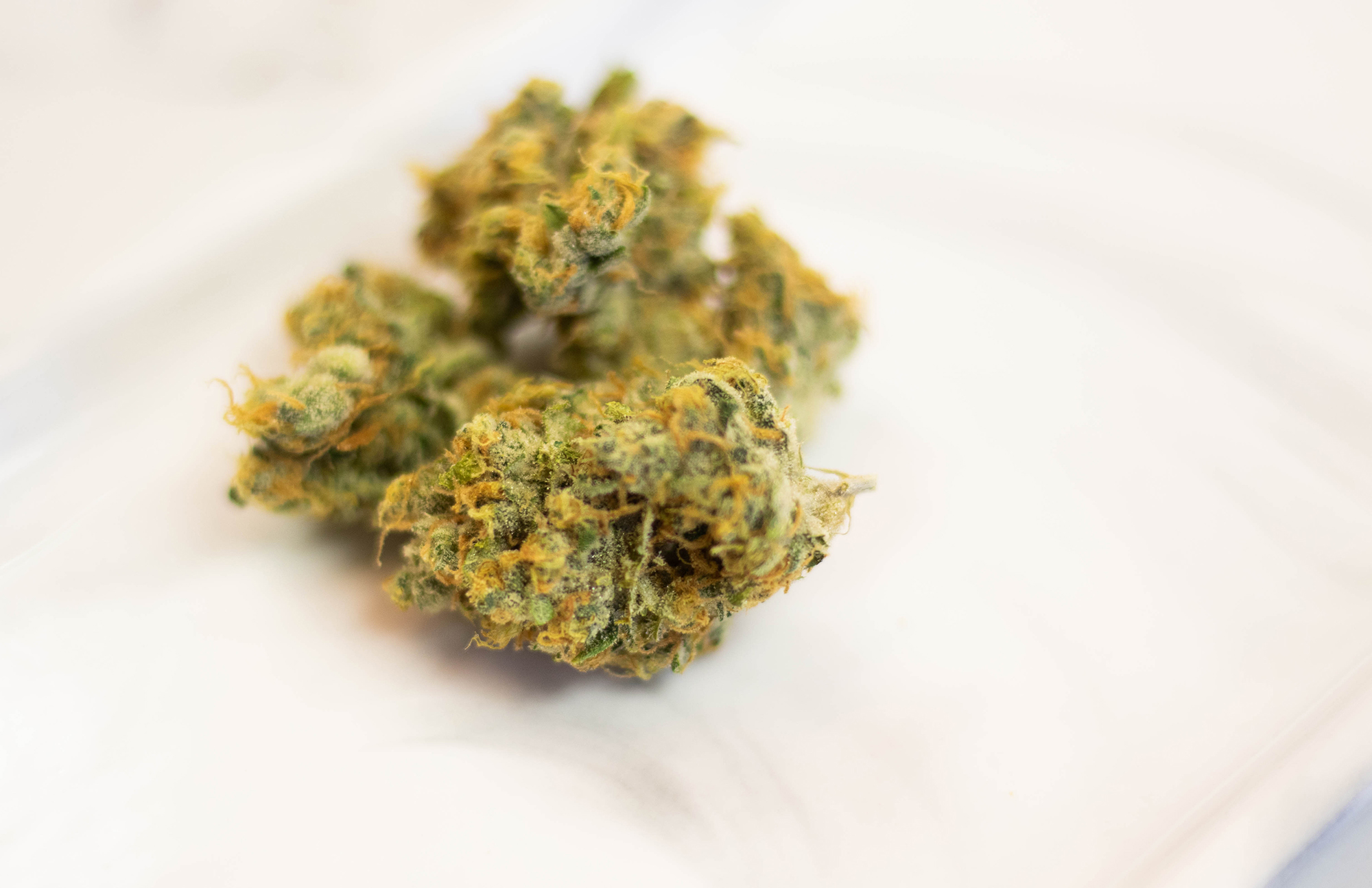Brandon Coleman was 26 years old when he began experiencing seizures.
In August 2018, he was motivated and healthy, working his dream job as a firefighter in Howard County. But things took a turn for the worse when the 2013 University of Maryland graduate was diagnosed with epilepsy the following month. Forced to leave his job, Coleman became a patient at Greenhouse Wellness, a medical cannabis dispensary in Ellicott City.
“[Firefighting] was my passion,” he said. “I loved it and thought I was going to do it forever.”
However, after his time as a patient, Coleman decided to turn his passion for cannabis into a career. He joined the Greenhouse team as a wellness consultant in early 2019 before being promoted to purchasing manager in May.
“The cannabis industry kind of served as a unique crossroads for everything that I’ve done in my life so far,” he said.
[Read more: UMD’s public health school could get a new doctoral program]
Now, less than a year after entering the field, Coleman joined seven other alumni from this university and a current university employee in the first-ever nationwide master of science program in medical cannabis science and therapeutics. It’s currently offered through the University of Maryland pharmacy school, which is housed at the University of Maryland, Baltimore.
The program allows 150 individuals — including health care professionals, growers, scientists, regulators, policymakers and current industry workers like Coleman — in-depth exposure to an industry that still faces federal regulation, changing policy and emerging research.
“It’s a way to legitimize what we’re teaching patients on a daily basis,” said Coleman, who hopes to one day head operations or sales in a company that cultivates, processes and dispenses the drug. “For people who are already in the industry, it’s a way to further themselves even more professionally.”
Dr. Leah Sera, who currently serves as director of the program, sees it as a way to “close the knowledge gap” between what people know about cannabis within the science, therapeutics and policy realms. The program and curricula will evolve alongside new cannabis research and legislation, she added.
“Considering how rapidly things are changing with regards to medical cannabis, I think our students are going to go out and create a lot of new roles and change a lot of what the landscape looks like,” Sera said.
Nationwide, states grapple with legalization amid pushback from various advocacy groups and opponents. In Maryland, cannabis is currently legal for medicinal purposes. Eleven states — including Massachusetts and California — have legalized the drug for recreational use, and 33 states have for medicinal purposes.
[Read more: UMD’s grad school may hire adviser to help students with health issues, leaves of absence]
A recent study the University of Pennsylvania released found that adolescents who consistently use marijuana were likely to test lower on memory exams than nonusers. According to the Centers for Disease Control and Prevention, about 1 in 10 cannabis users will likely become addicted.
However, research is insufficient, and a lack of in-depth clinical trials due to federal regulation could be one reason behind the stigma, Maryland graduate Sabina Rasoulov said.
Rasoulov joined the cannabis master’s program this year, and hopes to one day research how cannabis affects different physical movement disorders, mental illnesses and cancers.
“Anything can help, because nothing is really known right now,” she said. “The more research that we have, the better.”
Over the course of two years, students in the program will cover a comprehensive curriculum that begins with the history of cannabis from a cultural and political standpoint and progresses through cannabis science, its use as a medicine, therapeutics and student-chosen electives.
The program is part-time and online. Twice a year — once in both the fall and spring — students will meet at a symposium to interact with colleagues, professionals and experts.
Alongside their coursework, students will complete a group project in which they will work with clients in the medical cannabis industry to develop educational materials for a specific population. Rasoulov and her group are currently working to educate the geriatric population on the uses, dosages and benefits of medicinal cannabis.
Another student, Savannah Reedy, hopes to study the drug on a molecular level. She stumbled upon the master’s program when she was figuring out where to attend graduate school and working in a lab that tests cannabis for the state. Now, she’s looking forward to hearing other people’s experiences on the clinical and therapeutic side.
“There’s so much to find out,” Reedy said. “More research needs to be done for people to actually realize how beneficial some of these remedies are.”
Once doctors, other professionals and the media begin sharing this research, she hopes the public will open up to the drug and the idea of using cannabis in general. The 2018 graduate said she’s excited for the future of the industry amid a time of vast change, apprehension and overhaul.
“It’s exciting to be a part of this movement and a lot of my colleagues feel the same way,” Reedy said. “We’re basically ground-floor, only up from here.”
CORRECTION: Due to an editing error, a previous version of this story’s headline incorrectly stated that the medical cannabis program exists at the University of Maryland. It exists at the University of Maryland Baltimore. This story has been updated.



